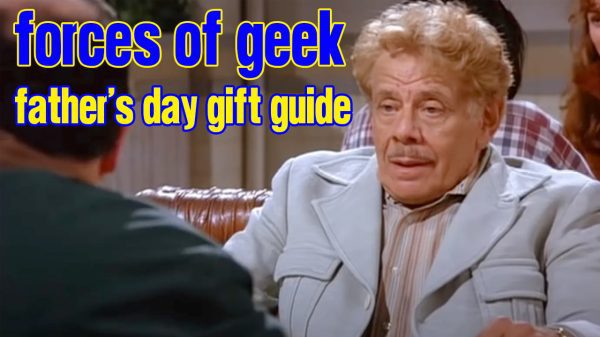
Decal Releasing
There’s a major twist two-thirds of the way into Eileen.
It’s not something that many people will see coming—not a lot of foreshadowing—and yet the movie doesn’t make sense without it. Unfortunately, the movie also won’t hit right if you’re waiting for it to happen, so this will be spoiler-free.
The farthest I’ll go is to compare Eileen—both the movie and its title character—to what Hannah Arendt wrote about the banality of evil. You always have to watch out for the quiet ones.
Directed by William Oldroyd (Lady Macbeth), Eileen is set in the early 1960s, somewhere in small-town Massachusetts, where the snows are dirty and everyone’s dressed in scratchy wool.
The original novel by Ottessa Moshfegh is told first-person by Eileen, sixty years after the events of the story: she’s a classic unreliable narrator, hyper-detailed in her observations and yet completely missing the point of her own narrative. The screen adaptation (by Moshfegh and her husband Luke Goebel) wisely avoids the Fried Green Tomatoes treatment: we’re in the moment with Eileen, which means that her normal quickly becomes ours.
Except that there’s nothing normal about Eileen Dunlop.
Played by Thomasin McKenzie (building on the voyeur-heroine persona she played in Last Night in Soho), Eileen speaks in a dishwatery Boston-inflected accent, camouflages herself in toneless dresses, works in a reform penitentiary for boys, and masturbates in public. This is literally the first thing we learn about her. Parked in her dad’s car at a lonely makeout point, she’s watching two young people engaged in what they used to call heavy petting. She finally gets her windshield so fogged up that she opens the door—is she going to run? Try to join in?—then grabs a handful of snow and shoves it into her underwear.
This is one of those movies where it pays to notice the details. In this case, it’s the suspiciously yellow stain in the snow next to the handful she grabs. Eileen has been out there watching the lovebirds for a long time.
So Eileen’s gotta have it… but so far she hasn’t.
She fantasizes about the skinny male guard who works alongside her: he’s okay but hardly passion-pit material, another clue to Eileen’s desperate need for contact. At home she bickers with her father (Shea Whigham), a former police chief who’s lapsed into drunkenness since his wife’s death and now terrorizes the neighbors by waving his gun around. Eileen isn’t trying to get her dad sober, she just doesn’t want him wandering: each night she hides his shoes, then places a fresh pint of vodka next to the empty one.
All of this primes Eileen for a major folie à deux when Rebecca Saint John (Anne Hathaway) shows up as the reform school’s new psychologist. Rebecca’s older, urbane in a pink tailored suit, with a not-entirely-coiffed mop of blonde hair—Jackie Kennedy DNA-spliced with Marilyn. She’s careful to let the boss know that she graduated from Harvard, not Radcliffe. She’s compassionate toward her young patients but clearly doesn’t give a flip for the house rules: she protests when the matron informs her that boys at the school are forbidden to touch themselves.
She is, in short, everything Eileen isn’t. Which means that Eileen has no choice but to succumb when Rebecca invites her out for a drink.
Their date at the town’s one and only bar is both painful and deeply charged. Rebecca orders a martini, by her admission not her first of the evening; Rebecca nervously orders a beer. The local boys look at Rebecca and see fresh meat. Rebecca pulls Eileen onto the floor to dance and one of them tries to cut in. After a brief tussle, Rebecca deftly sends him flying into a wall.
Outside the bar, Rebecca impulsively kisses Eileen, seeming not to care who’s watching. She disappears. Then Eileen goes back into the bar for what will be many more drinks.
Until this point, Eileen seems to have been made for the part of timid prey, with Rebecca in the role of the worldly seducer. But this is where we begin to realize just how dangerous a gift Eileen has for projecting fantasies onto people who can’t possibly live up to them. Just as the young prison guard is no Romeo, Rebecca is no Mrs. Robinson.
She smokes like it’s a lifeline. She walks into confrontations without a definite plan, and when she’s cornered she tends to improvise in inadvisable ways. During her first day on the job she attempts to meet with Lee Polk, a boy who stabbed his father to death, and his visibly traumatized mother. It ends in a screaming match. When Rebecca first appeared, I had thoughts similar to Eileen’s: What is this lace-curtain Boston Harvard lady doing in Nowhere, Massachusetts? After the bar scene, I began to think that this is the kind of place you wind up when you pull that kind of shit one too many times.
From here on out, Eileen begins to seem less of a victim than a volunteer.
Eager to impress Rebecca, she begins to dress in her late mother’s elegant but ill-fitting clothes, molding herself into whatever Rebecca might want her to be. When Rebecca’s not around, Eileen sleeps in her office. Halfway through the story it became clear that Eileen’s obsessiveness could get her in a lot more trouble than Rebecca’s fumbling overtures ever will.
Then Rebecca just as suddenly vanishes, cutting off Eileen’s oxygen. After two weeks of silence, Rebecca calls Eileen and invites her over for a special Christmas Eve celebration, just the two of them. Eileen gets dolled up, grabs her father’s car keys, so eager to join Rebecca that she leaves her father in possession of his shoes and his gun. This is where we get the twist. Suffice to say that Rebecca and Eileen aren’t the only ones in the house that night.
The ending is powerful—chilling, in fact—but we don’t get nearly enough of a build-up to it. As much as I found myself engrossed in the nuances of McKenzie’s performance, it seemed like too slow of a boil. Whenever a movie promises an obsessive, forbidden romance, you kind of expect things to get freaky and dangerous.
Things never really catch fire in Eileen. Motives are hinted at, intentions register with a flick of the eyes… but except for a stolen kiss in an alley outside a bar and a blackout-drunk episode that nearly ends in a car crash, we don’t see the danger coming until it hits us. It left me feeling like a different writer had taken over the script in the final act, and suddenly we are meeting a completely new Eileen and Rebecca. I realize this was probably intentional.
The real story of Eileen is Eileen.
She is, like the man in the children’s poem, the girl who wasn’t there. She’s so eager to pattern herself on what Rebecca wants, or what she thinks Rebecca wants, that you could wonder if she has any internal life at all. I was once told by an FBI agent that most serial murderers have a limited imagination but a powerful ability to fantasize.
I asked him how those two things were different and he blandly replied, “obsession.” Sociopaths, he said, can change how they appear but they can’t change the subject.
This is how Eileen hooks us in.
Once we’ve accepted her as a naïve young women with overdeveloped fantasies, it takes a while to realize that she has effectively written a script for Rebecca to follow, and that Rebecca is more vulnerable than the girl she’s supposedly seducing. Which means that we, the audience, are also getting roped in by Eileen. As it is, the movie left me feeling a little crazier and more paranoid, which is the best compliment anyone can give to a psychological thriller.
Still, Eileen is one of the rare thrillers that could stand to be twenty or thirty minutes longer. If you’re going to slow-burn us, give the coals a little more time to smolder before they burst into flame.











































































































You must be logged in to post a comment Login